AI in Automobile is increasingly transforming the automotive industry, revolutionizing how vehicles operate and interact with their environments. From autonomous driving to predictive maintenance, AI is set to redefine mobility. This article explores the current state of AI in the automotive sector, its applications, benefits, challenges, and future trends.
The State of AI Adoption in the Automotive Industry
Despite rapid advancements in certain areas, the overall adoption of AI in the automotive industry has been slower than anticipated. While autonomous driving technology showcases remarkable progress, widespread implementation remains a work in progress. This section provides an overview of the current state, balancing rapid advancements with the broader industry’s cautious adoption rate.
Applications of AI in the Automotive Industry
1. AI Chatbots for Customer Service in the Automotive Industry

AI chatbots are revolutionizing customer service in the automotive sector. Leveraging AI, these chatbots deliver instant, automated responses, making interactions more efficient and personalized. Using Natural Language Processing (NLP) and machine learning, AI chatbots understand and address user queries effectively, enhancing the overall customer experience in the automotive industry.
Key Benefits and Features of AI Chatbots:
- 24/7 Availability: Provides round-the-clock support, even outside business hours.
- Instant Responses: Delivers immediate answers to customer inquiries using AI.
- Appointment Scheduling: Efficiently manages service bookings through AI-driven systems.
- Personalized Recommendations: Suggests tailored services and products based on user data.
- Efficient Issue Resolution: Handles routine tasks and queries with AI capabilities.
- Seamless Integration: Connects with CRM and inventory systems for up-to-date information.
- Data Collection: Gathers insights on customer behavior and preferences using AI.
- Cost Efficiency: Reduces the need for a large customer service team with AI automation.
2. Autonomous Driving: The Role of AI in Self-Driving Vehicles
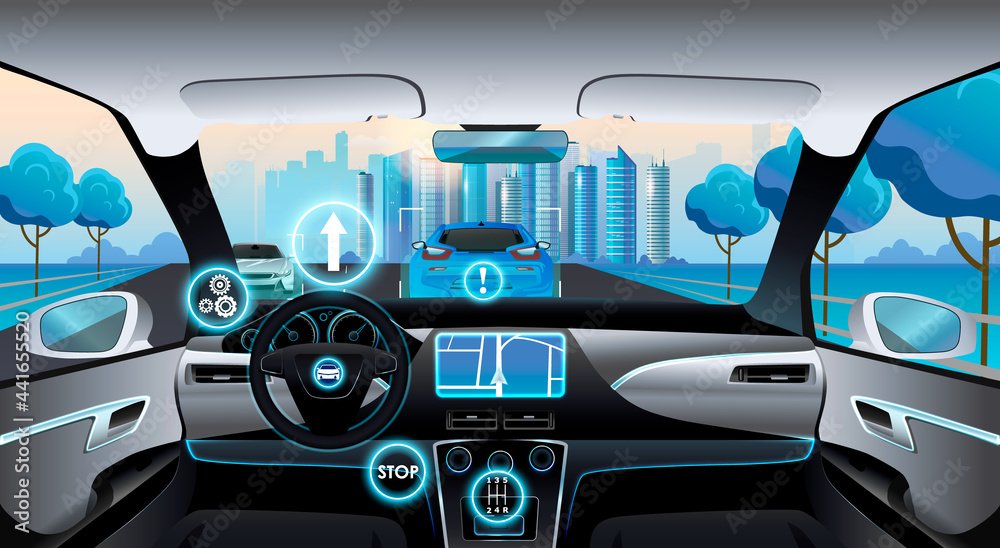
Autonomous driving is a leading application of AI in the automobile industry. By harnessing AI algorithms, sensors, and machine learning, vehicles can navigate, make real-time decisions, and adapt to various driving conditions. Companies such as Tesla and Waymo are at the forefront of developing self-driving technology, though full integration into everyday driving is still progressing.
Key Aspects of Autonomous Driving with AI:
- Ongoing Integration: The integration of self-driving systems into regular use is still evolving.
- Real-Time Navigation: AI enables vehicles to navigate roads and traffic conditions in real-time.
- Decision Making: Machine learning algorithms help vehicles make critical driving decisions quickly and accurately.
- Adaptation: AI systems adjust to changing driving conditions and environments.
- Leading Companies: Tesla and Waymo are pioneering advancements in autonomous driving technology.
3. Predictive Maintenance: How AI is Transforming Vehicle Upkeep

AI is revolutionizing vehicle maintenance through predictive analytics. By analyzing data from vehicle sensors, AI can forecast potential failures and schedule maintenance before issues become critical. This proactive approach reduces downtime and enhances vehicle longevity.
Key Benefits of AI-Driven Predictive Maintenance:
- Cost Efficiency: Lowers maintenance costs by avoiding unexpected repairs and replacements.
- Failure Prediction: AI analyzes sensor data to predict and prevent potential failures.
- Proactive Scheduling: Automates maintenance scheduling to address issues before they escalate.
- Reduced Downtime: Minimizes vehicle downtime by addressing problems early.
- Extended Vehicle Life: Enhances the longevity of vehicles through timely maintenance.
4. Intelligent Route Optimization: Enhancing Travel Efficiency with AI
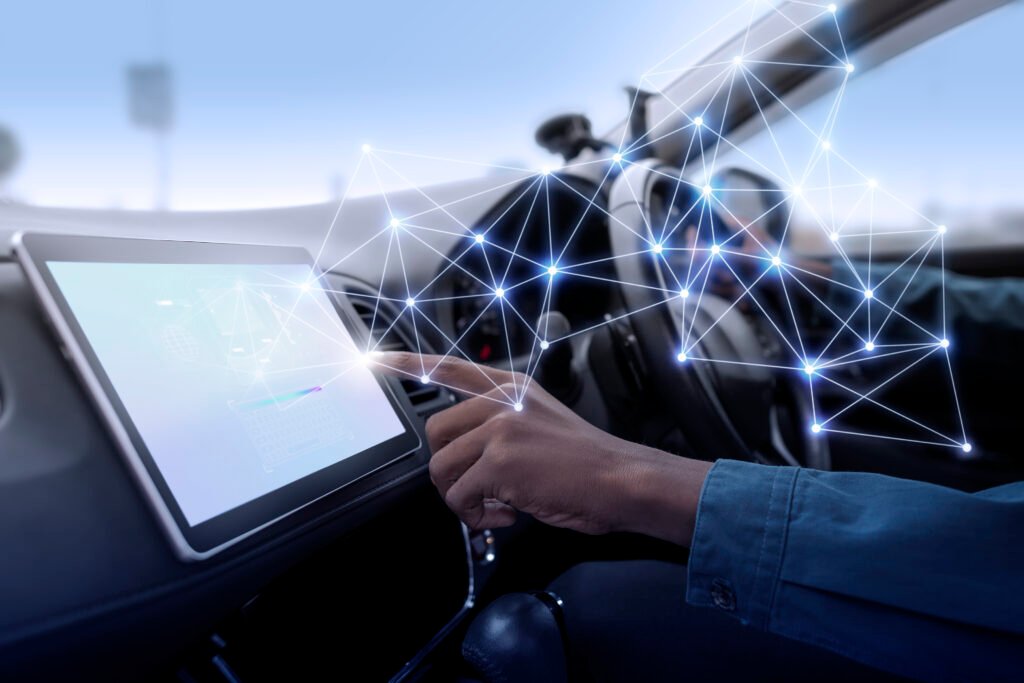
AI-powered route optimization systems assist drivers in selecting the most efficient paths using real-time traffic data, historical traffic patterns, and user preferences. This technology improves travel efficiency while reducing fuel consumption and emissions.
Key Benefits of AI in Route Optimization:
- Efficient Path Selection: AI calculates the best routes based on current and historical traffic data.
- Real-Time Updates: Provides dynamic route adjustments to avoid traffic congestion.
- Fuel Savings: Reduces fuel consumption by optimizing routes for shorter travel distances.
- Lower Emissions: Minimizes emissions through more efficient driving routes.
- User Preferences: Incorporates driver preferences for a more personalized experience.
AI and Machine Learning: Replicating Human Learning in Automotive Systems
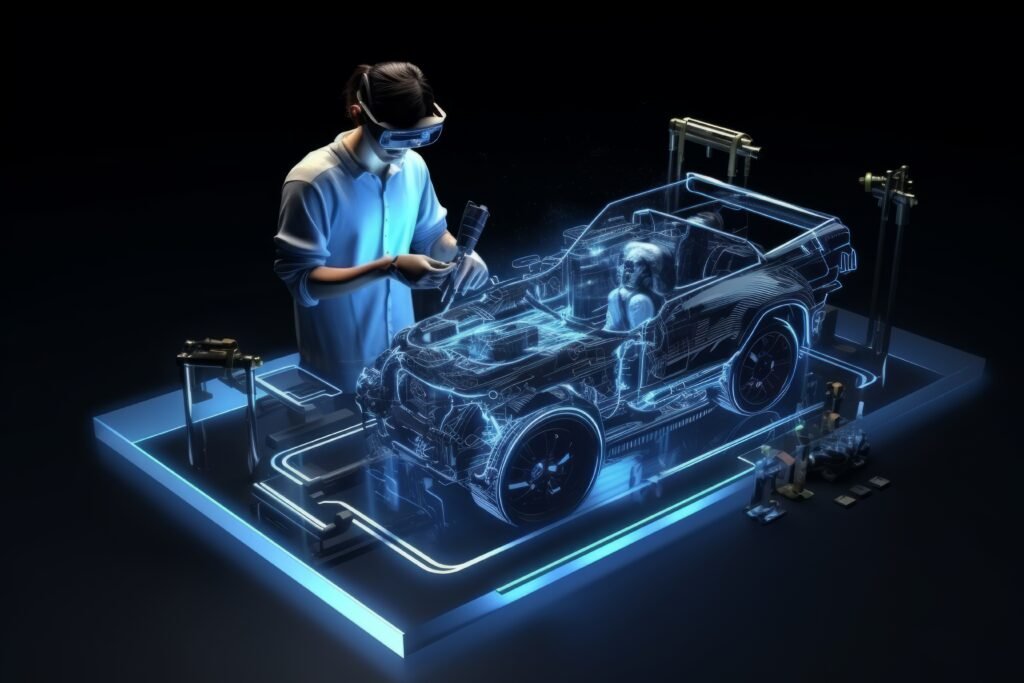
AI and machine learning are enabling automotive systems to mimic human learning processes. By analyzing vast amounts of data, these technologies can adapt and improve over time. Machine learning algorithms help vehicles learn from their environments and experiences, leading to smarter and more responsive systems.
Benefits and Challenges of Implementing AI in Automobiles
Benefits:
- Improved Efficiency: AI enhances vehicle performance, route planning, and fuel efficiency.
- Enhanced Safety: AI-driven systems can detect potential hazards and prevent accidents.
- Better Customer Experience: Personalized services and efficient customer support improve overall satisfaction.
Challenges:
- Data and Infrastructure: Robust data collection and infrastructure are essential for effective AI implementation.
- Ethical and Privacy Concerns: AI systems must address privacy issues and ethical considerations, particularly in autonomous driving scenarios.
- Technical Limitations: Despite advancements, AI technology still faces limitations and requires further development.
Leading Companies and AI Initiatives
Several companies are at the forefront of AI innovation in the automotive industry. Tesla’s Autopilot and Waymo’s self-driving technology are notable examples. Traditional automakers like Ford and General Motors are also investing heavily in AI to stay competitive and drive innovation.
Future Trends in AI and the Automotive Industry
- Integration of OEM-based AI Chips: Automotive manufacturers will embed OEM-based AI chips to enhance vehicle functionalities like lighting systems, cruise control, and autonomous driving capabilities.
- Software Integration and Market Value: The seamless integration of software within automotive systems is pivotal to the sector’s growth, with the AI market segment poised to reach a valuation of US$ 200 billion within the next decade
- Autonomous Vehicle Segment Expansion: The value of the autonomous vehicle segment is expected to surge to $30 billion by 2024, driven by advances in self-driving technology. The market share for autonomous vehicles is forecasted to expand by 10.9%, with an anticipated 99,451 million units by 2032, highlighting a growing consumer demand for autonomous technology.
- Growth in ADAS: The Automotive Advanced Driver Assistance Systems (ADAS) market is set to experience a significant growth rate of 9.6% annually. With an expected market valuation of $131 billion, this growth reflects an increasing adoption of advanced safety features in vehicles.
- Automotive AI Market Expansion: A market research report projects the automotive AI market to grow at a CAGR of 39.8% from 2019, reaching $15.9 billion by 2027, indicating robust growth and investment in AI technologies within the industry.
- Generative AI in Automotive: The application of generative AI in the automotive sector is anticipated to rise from $271 million in 2022 to over $2.1 billion by 2032, according to MarketResearch.biz. This growth signifies the expanding role of generative AI in driving innovation and efficiency in automotive design and manufacturing.
source
1.https://www.simplilearn.com/ai-in-automative-article
2.https://www.fullpath.com/blog/the-impact-and-benefits-of-ai-in-the-automotive-industry
Economic Impact and Challenges
The global market for AI in automotive is projected to grow significantly, with estimates reaching $15.9 billion by 2027. However, challenges such as data privacy, cybersecurity, and ethical considerations in autonomous driving must be addressed.In conclusion,
AI is a transformative force in the automotive sector, enhancing safety, efficiency, and consumer experiences. Staying informed about these developments is crucial for industry stakeholders and consumers as we move towards a more connected and automated future in mobility.
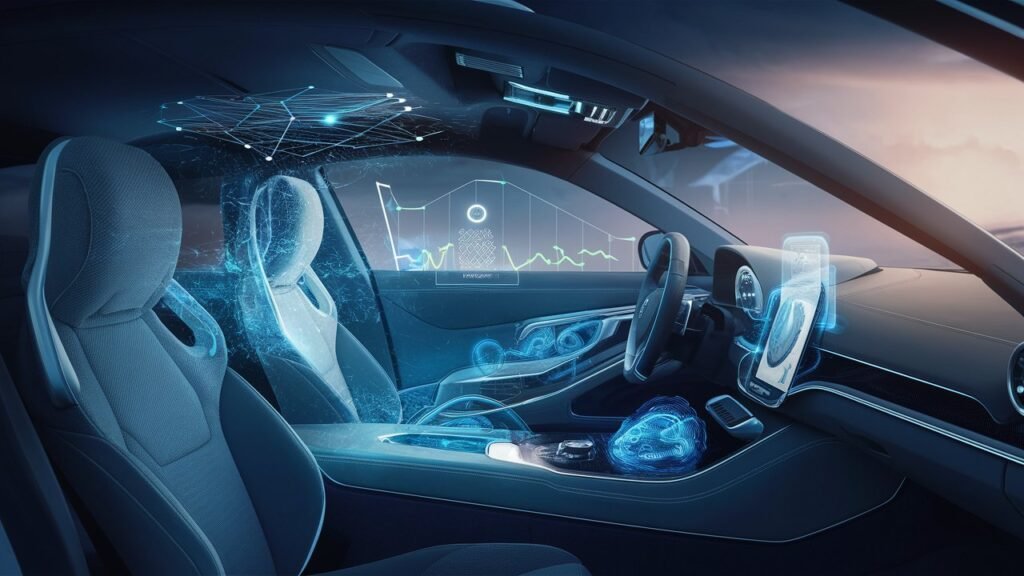


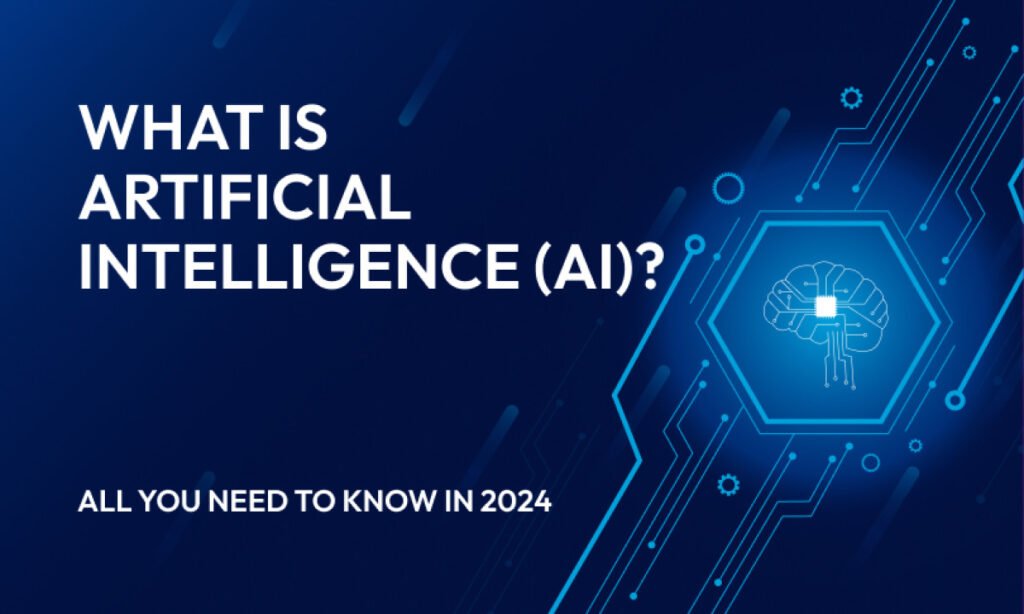

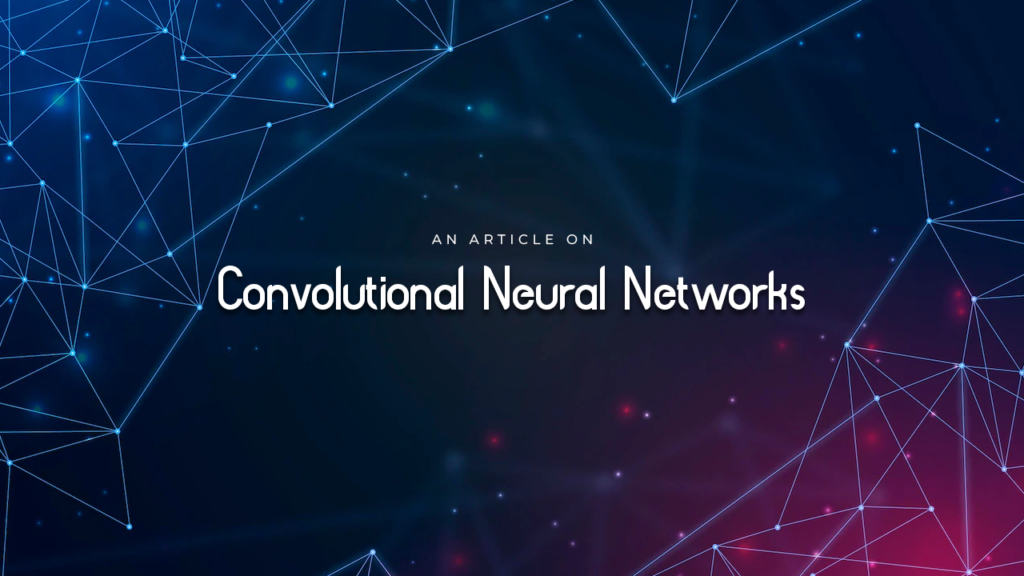

Pingback: What Is Deep Learning? The Definitive Game-Changing Guide For 2024 - IntellicoBlitz
Hi my loved one I wish to say that this post is amazing nice written and include approximately all vital infos Id like to peer more posts like this
Hello, Thank you so much for your kind words! We’re thrilled to hear that you found the post helpful. If you enjoyed it, feel free to share it with others who might also benefit from it. We look forward to your continued support and feedback on our future posts!
Your blog has quickly become my go-to source for reliable information and thought-provoking commentary. I’m constantly recommending it to friends and colleagues. Keep up the excellent work!
Hi my loved one! I want to say that this post is amazing, great written and include almost all significant infos. I would like to peer more posts like this .
I have been examinating out a few of your articles and i must say pretty good stuff. I will make sure to bookmark your website.
An impressive share, I just given this onto a colleague who was doing a little analysis on this. And he in fact bought me breakfast because I found it for him.. smile. So let me reword that: Thnx for the treat! But yeah Thnkx for spending the time to discuss this, I feel strongly about it and love reading more on this topic. If possible, as you become expertise, would you mind updating your blog with more details? It is highly helpful for me. Big thumb up for this blog post!
Its great as your other articles : D, regards for putting up.
It’s actually a nice and helpful piece of info. I am glad that you just shared this helpful info with us. Please stay us up to date like this. Thanks for sharing.
I cling on to listening to the news broadcast lecture about getting free online grant applications so I have been looking around for the best site to get one. Could you tell me please, where could i acquire some?
Enjoyed reading this, very good stuff, regards.
I really enjoy studying on this website , it has wonderful posts. “Sometime they’ll give a war and nobody will come.” by Carl Sandburg.